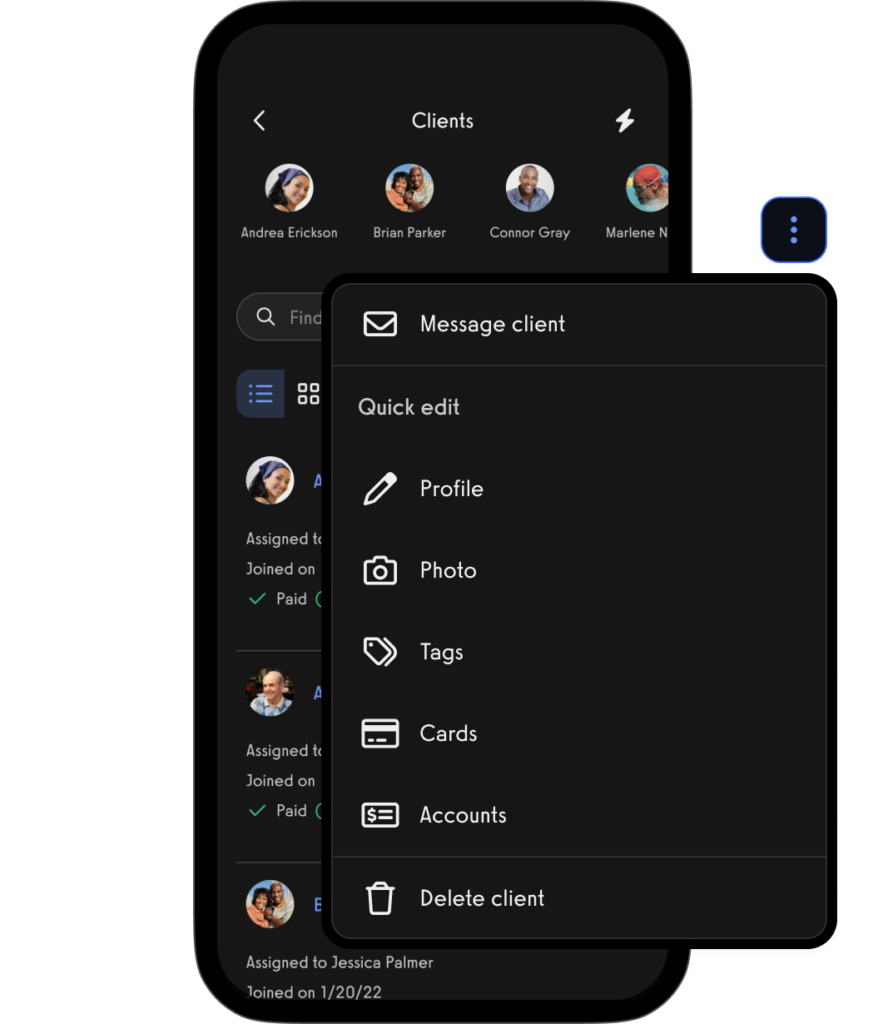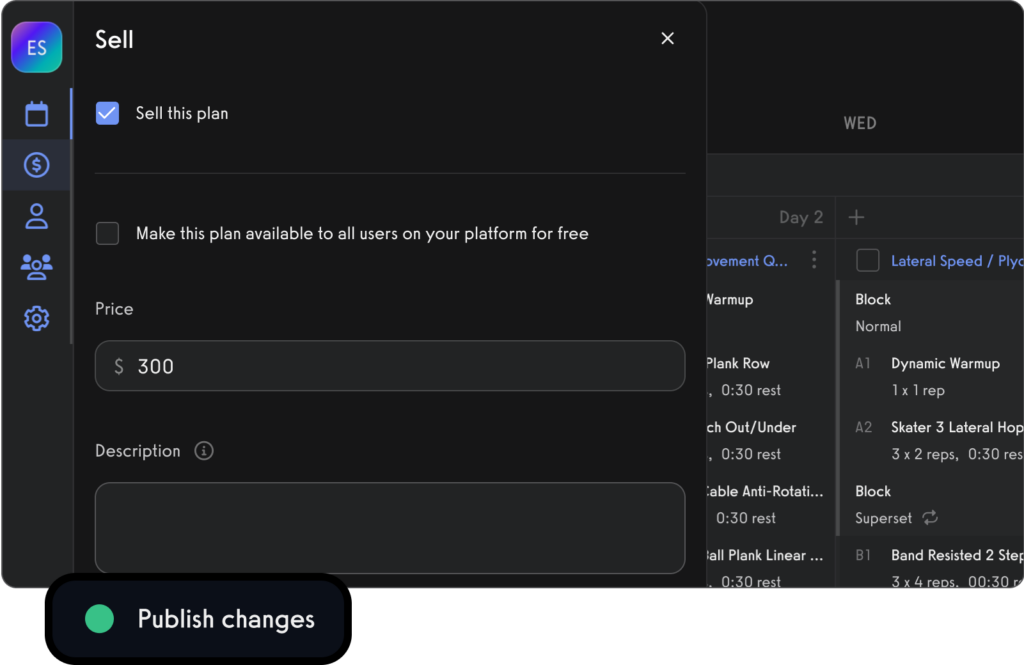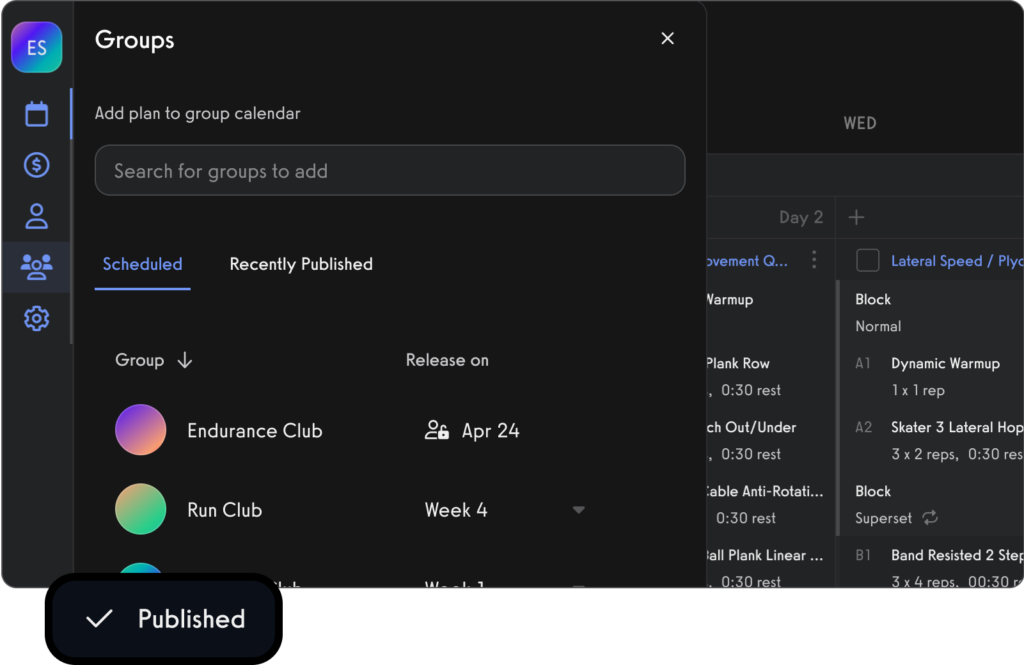
Use this free personal trainer waiver form template and then learn how to create a personal trainer waiver form.

Use the free personal trainer waiver and release form template below and then copy and paste and customize it as needed for your personal training or gym business.

In this article, we will explore the key elements to include in your waiver form, provide tips for customization, and discuss how to ensure compliance with privacy laws. We will also highlight common mistakes to avoid, how to properly store and handle waiver forms, and the role of a waiver form in risk management. Lastly, we will delve into the different types of liability covered by a personal trainer waiver form and the need to have gym insurance and personal trainer insurance to make sure your fitness business is protected.
Discover the importance of using a personal trainer waiver form template to protect yourself and your clients. And if you are really looking for a convenient and professional way to offer personal training waivers, invoices, releases, assessments, lead forms, and more then check out how to manage your fitness business online with the best gym management software and the best personal training software. This means that you can easily create personal trainer invoices, waivers, forms, fitness assessments, lead forms, registration forms, online booking, workout plans, and much more.


Use the Exercise.com workout plan creator to create your workout plans.

Then mark them for sale online so you can sell workout plans easily and quickly.

Publish your custom branded fitness apps to iOS and Android so you can offer a premium workout logging experience to your community.

Run fitness challenges, create online workout groups, do distance training, and of course, sell workout plans online, all right within the Exercise.com platform.


“Developing an easy intake system with my apps and ways to scale the delivery of workouts has been huge. Working with 20-30 individuals who each have specific goals and restrictions can be challenging, but your platform makes it easy to organize everyone’s programs and put a plan together that will get them the best results possible. The simple, effective tools help expand and simplify my coaching process.”
Dean Somerset Owner, Somerset Fitness[Your Business Name or Your Name – Personal Training]
Personal Training Waiver and Release Form
Client Information
Emergency Contact
Waiver and Release of Liability
I, [Client’s Full Name], hereby acknowledge that I have voluntarily chosen to participate in a physical exercise program with [Your Business Name or Your Name]. I understand that the program includes activities that may be strenuous and may cause bodily injury. I am fully aware of the risks and hazards involved.
Acknowledgment of Risks:
Release of Liability:
Acknowledgment of Understanding:
Consent for Emergency Medical Treatment:
Client’s Signature: ________________________________
Date: ____________
Trainer’s Signature (if applicable): ________________________________
Date: ____________
[Your Business or Personal Contact Information]
This Personal Trainer Waiver Form Template is an important document for personal trainers and fitness professionals. It serves to inform clients about the potential risks associated with physical exercise and to protect the trainer or business from liability. It is crucial for trainers to ensure that clients read, understand, and sign this waiver before beginning any training program. This template can be customized to reflect the specific services and policies of your training or fitness business.
Use the personal training waiver software from Exercise.com to create professionals fitness waivers right away.

Exercise.com makes my life easier by providing an all-in-one solution and the opportunity to help those who otherwise would never have access to my programming!
Tony Gentilcore Founder, Core OnlineWhen starting a personal training business, one of the most crucial documents you need is a comprehensive waiver form. This document serves as a legal contract between you, as the personal trainer, and your clients. It protects both parties by clearly outlining the risks involved in fitness training and providing a framework for liability in case of injury or any other unforeseen circumstances.
A personal trainer waiver form also demonstrates your commitment to professionalism and the well-being of your clients. It sets clear expectations and ensures that your clients are fully aware of the potential risks associated with physical activity.
In the fitness industry, where physical activity is an integral part of the training process, accidents and injuries can occur. Waiver forms are essential to protect personal trainers from liability claims arising from these situations. By signing a waiver form, clients acknowledge that they have been informed of the risks and accept responsibility for their own well-being during training sessions.
Moreover, having a well-drafted personal trainer waiver form instills confidence in your clients. It demonstrates that you take their safety seriously and have taken the necessary precautions to ensure a safe training environment. This can enhance your professional reputation and build trust with potential clients.
A personal trainer waiver form provides legal protection by establishing a clear understanding between you and your clients regarding the inherent risks involved in physical training. It outlines the terms and conditions of training, including any restrictions or precautions that must be followed. By signing the waiver form, clients acknowledge their understanding of these risks and their agreement to participate at their own risk.
However, it’s important to note that a waiver form does not provide absolute protection against all legal claims. While it can serve as a strong defense in court, its enforceability may vary depending on jurisdiction and specific circumstances. Therefore, it’s crucial to consult with a legal professional when drafting your personal trainer waiver form to ensure it meets the requirements of your jurisdiction.
Creating a comprehensive personal trainer waiver form involves including specific elements that protect both you and your clients. These elements typically include:
Including these key elements in your personal trainer waiver form template will help ensure that you have a comprehensive document that covers all necessary aspects of client agreement and liability protection.
Now that you understand the importance of a personal trainer waiver form and the key elements to include, let’s explore the steps to create an effective waiver form:
By following these steps, you can create an effective personal trainer waiver form that protects both you and your clients while adhering to legal requirements.
While using a template is a great starting point, customizing your personal trainer waiver form allows you to tailor it to your specific business and client needs. Here are some tips to consider when customizing your waiver form template:
Customizing your personal trainer waiver form ensures that it aligns with your branding, accurately addresses your unique training scenarios, and caters to the needs of your specific client base.
In today’s digital age, privacy and data protection are paramount. When collecting client information through your waiver form, it’s essential to comply with applicable privacy laws. Protecting your clients’ personal information is not only a legal requirement but also fosters trust and confidence in your business. Here are some tips to ensure compliance:
By prioritizing privacy compliance and implementing robust data protection measures, you can safeguard your clients’ personal information and demonstrate your commitment to their privacy rights.
While creating a personal trainer waiver form, it’s essential to avoid common mistakes that may render your document ineffective or legally invalid. Here are some mistakes to watch out for:
By avoiding these common mistakes, you can ensure that your personal trainer waiver form is legally sound, comprehensive, and provides significant protection for both you and your clients.
The proper storage and handling of personal trainer waiver forms are fundamental aspects of risk management and client confidentiality. Here are some best practices for storing and handling these important documents:
By following these storage and handling practices, you can safeguard client confidentiality, minimize the risk of data breaches, and comply with applicable privacy regulations.
A personal trainer waiver form plays a key role in risk management for your business. By clearly outlining the risks and responsibilities associated with physical training, it helps mitigate potential liability claims. Here are some ways a waiver form contributes to risk management:
Integrating a personal trainer waiver form into your risk management strategy is a proactive approach to protecting your business and ensuring a safe training environment for your clients. Be sure to have adequate gym insurance and personal training insurance for risk mitigation.
A personal trainer waiver form can cover various types of liability that may arise during training sessions. Some common types of liability include:
While a personal trainer waiver form cannot completely absolve you of all liability, it provides a legal agreement between you and your clients that helps define responsibility and manage potential risks.
We hope this comprehensive guide to the personal trainer waiver form template has provided you with the necessary information to create an effective document that safeguards both you and your clients. Remember, legal requirements and regulations may vary by jurisdiction, so consult with a legal professional to ensure compliance. By prioritizing the safety and well-being of your clients through a well-drafted waiver form, you can position your personal training business for success.
To write a personal training waiver, start by clearly stating that the client acknowledges the risks associated with exercise. Include a clause releasing you from liability for injuries or health issues that may occur during training. Clearly outline client responsibilities regarding health disclosure and adherence to instructions.
Writing a fitness waiver involves outlining the potential risks of physical activity and stating that the client voluntarily assumes these risks. It should also include a release of liability for injuries or health issues sustained while participating in fitness activities.
An example of a personal training disclaimer is a statement indicating that the trainer is not a medical professional and cannot diagnose or treat individual health issues. It should advise clients to seek medical approval before starting any new exercise program.
Yes, you can write your own personal training waiver, but it’s recommended to consult with a legal professional to ensure that it complies with local laws and effectively covers all necessary liability aspects.
Personal training waiver forms are generally considered legally binding if they are well-written, specific to your services, and signed by the client. However, their enforceability can vary based on local laws and the specific circumstances of an incident.
A waiver form for a gym is a document that gym members sign to acknowledge the risks associated with using the gym’s facilities and equipment. It typically includes a release of liability for the gym in case of injuries or accidents.
A personal training waiver should state that the client understands and accepts the risks involved in participating in physical activity. It should release the trainer and facility from liability for any injuries or health issues, and confirm that the client has disclosed any relevant health information.
Exercise.com can help send waivers by providing a digital platform where waivers can be easily distributed and signed online. This feature streamlines the process, ensuring that clients can conveniently review and sign the waiver, and trainers can securely store and manage completed waivers electronically.

Excellent choice for my business! I tried nearly all the “major” platforms and found Exercise.com to be the most intuitive.